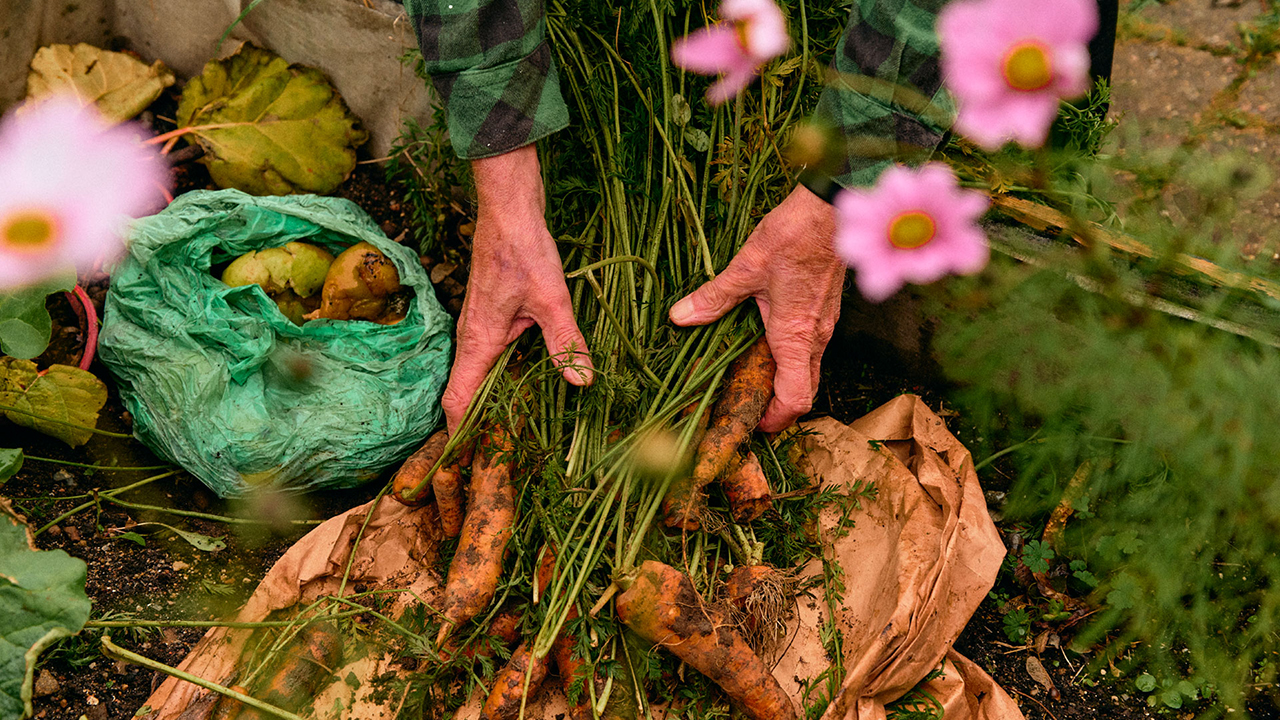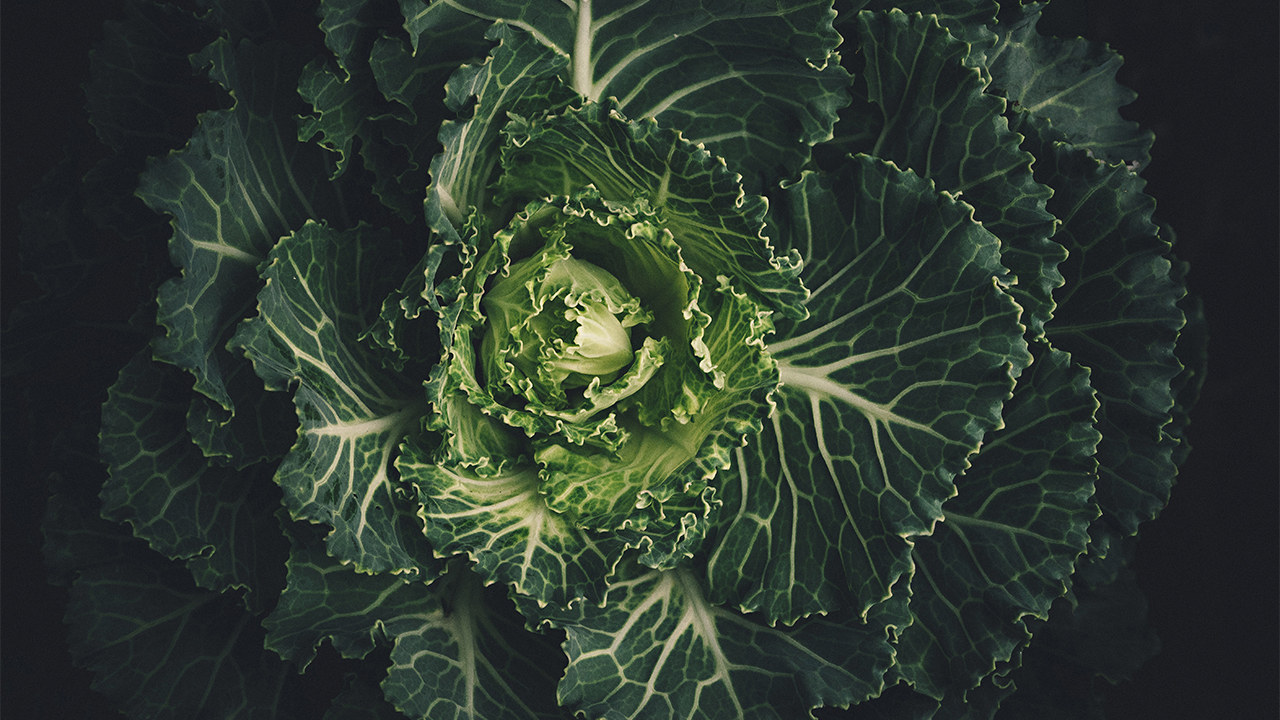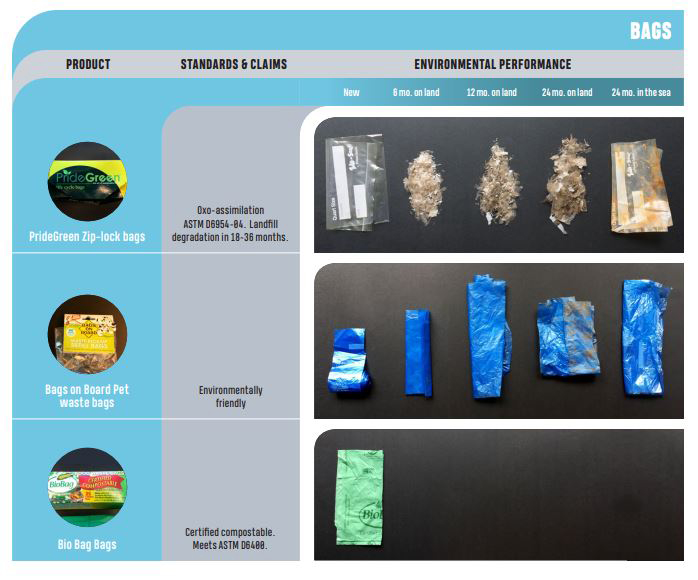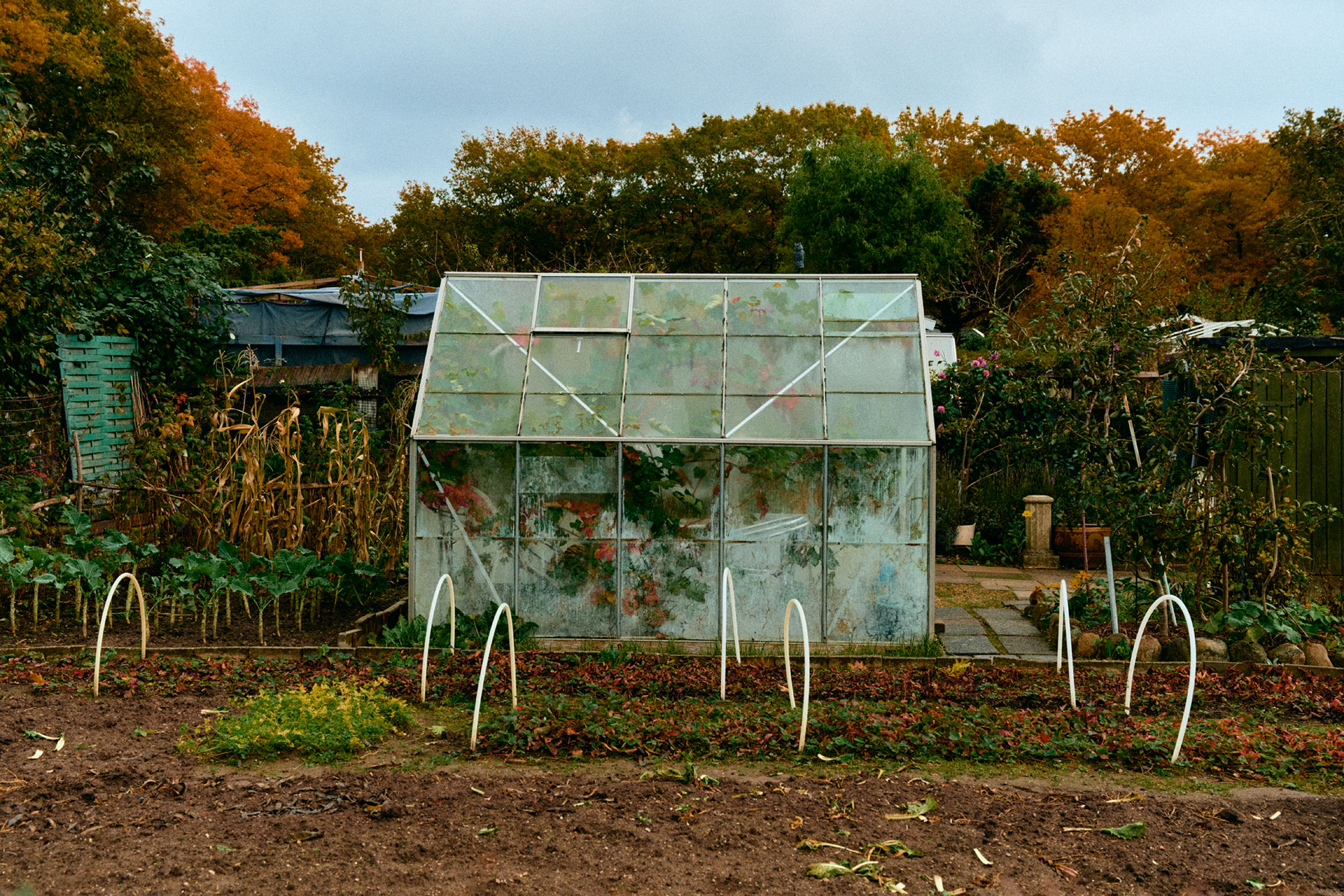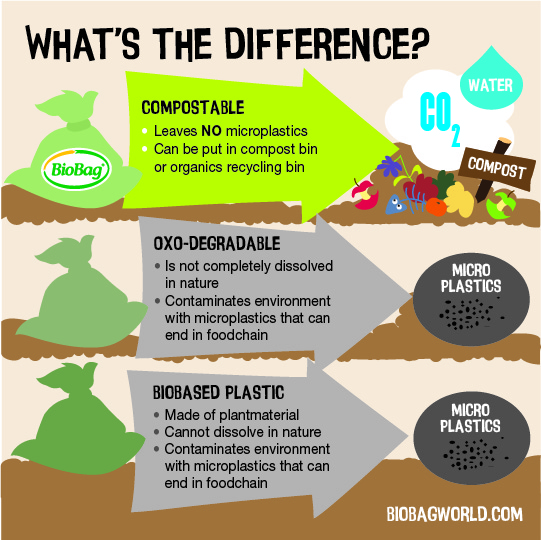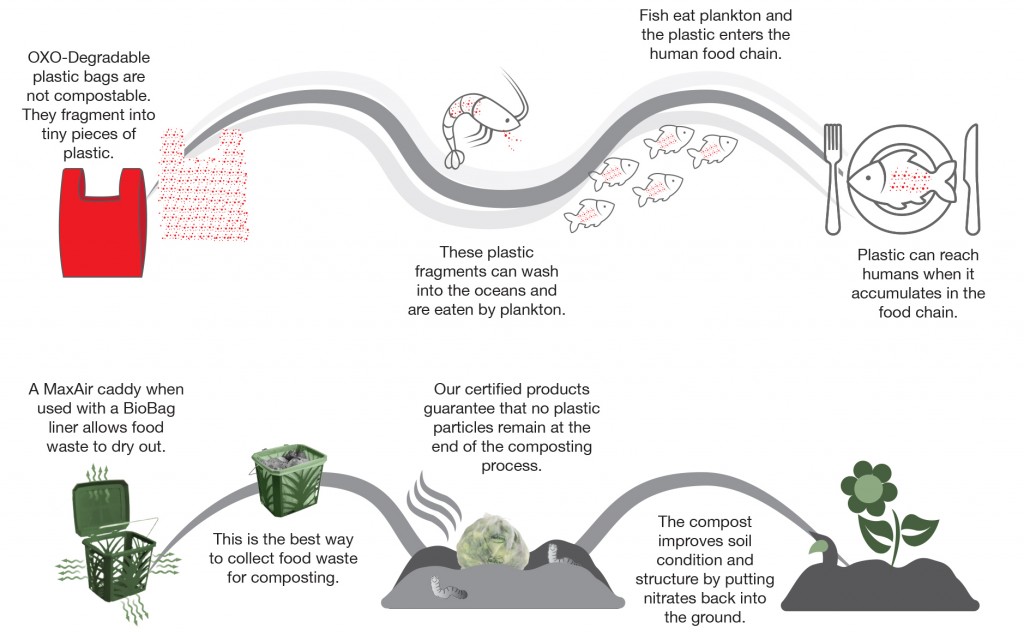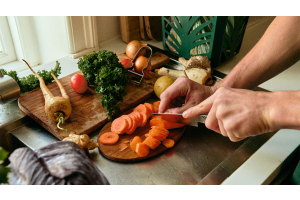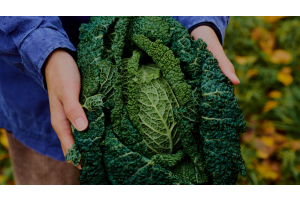Page 2 - admin admin
-
Posted: January 12, 2022Read more »
A clear advantage is the significant increase in the quality and quantity of separately collected organic waste and a corresponding increase in the amount of compost produced. Due to misunderstandings, there are different opinions and misconceptions are unfortunately quite common - both within municipalities as well as among consumers.
The study highlights some of the many scientifically proven benefits that certified industrial compostable organic waste bags offer to municipalities, citizens and to the environment. They significantly reduce the amount of conventional plastic in compost, as shown by a study published by the Wizenhausen Institute and University of Bayreyth.
Large scale experiments in Berlin, Milan, Munich and other cities showed that the amount of separately collected organix waste increased significantly by using the industrial compostable organic waste bags. Ventilated food waste containers remove odours and mold and minimize condensation, while reducing the weight
-
Posted: November 17, 2021Read more »
Plastic fractions highly contaminated with food waste cannot be recycled and are often therefore incinerated or, in worst cases, in some countries sent to landfill. By using compostable bioplastic to package food, the packaging can be composted together with the food waste.
Several studies indicate that when food waste is collected using certified biodegradable waste bags, the amount of food waste collected increases, and the food waste fraction is cleaner. All factors that make the collection and treatment of food waste even more sustainable. Moreover, it ensures no fossil microplastic is spread on the fields because bio bags decompose entirely. Read more about the role of bioplastics in the circular economy here.
-
Posted: May 11, 2021Categories: Environmental ImpactRead more »
Biobag Ireland UK is the first retail range of compostable bags to be certified for use in Irish food waste (brown) bins. Certification is awarded by Cré IRELAND which operates the only Irish scheme providing third party, independent assessment of compostable products in Ireland.
Only products like Biobag which have been assessed and certified by the scheme will be entitled to display the Irish ‘Cré Tick’ symbol. The scheme is great news for Irish consumers. It offers confidence that a product is accepted in domestic, food waste bins for processing locally in Ireland. This will increase public awareness and acceptance, leading to increased use of food bins and composting. Biobags are certified already by every major international body including OK Compost HOME and INDUSTRIAL and EN13432.
Adding a recognisably Irish certification to Biobag means that Irish consumers, waste collectors and composting facilities are assured that Biobag products are trustworthy, designed for Irish conditions
-
Posted: January 12, 2021Read more »
Novamont has expanded considerably in the past decade, in particular through internal growth, by acquiring and regenerating obsolete industrial sites. This transaction will allow Novamont to further expand its compostable bioplastics business into Northern/Eastern Europe, North America and Australia. Biobag will continue to operate as an independent organization, with the same leadership team who has achieved excellent results over the past few years.
-
Posted: December 15, 2020Read more »
“Soil is not renewable and it takes more than 2000 years to form a 10 cm layer of soil. But our lives depend on the soil – all production of food begins in the soil and soil binds enormous quantities of CO2 that would otherwise be released into the atmosphere. But in spite of this, the UN’s Food and Agriculture Organisation assesses that 33% of the planet’s soil is degraded and damaged by chemical contamination, acidification, nutrient imbalance and more,” says Novamont CEO, Catia Bastioli.
“If everyone knew that soil fertility, which is the basis of our food supply, was not renewable it would be a lot easier to create a sense of individual and collective responsibility.” “The combined effects of climate change and an exhausted soil can, over the course of the next 30 years, reduce agricultural output by half in some drought-affected regions. Globally, we need much more organic material and a comprehensive separation of food waste and organic materials can help contribute to that,” says
-
Posted: March 02, 2020Categories: MicroplasticsRead more »
Four sets of Biobags were tested - one in a backyard compost box for 6 months, a second for 12 months, and the last for 2 years. The composting environment was an open-air box, with the items placed in clay flower pots, and then buried 6 inches and left untouched in the composting bed until recovered. This served as a stand-in “best case” scenario for if that product was littered on land and was in contact with soil. It was not meant to simulate an actively managed and turned home compost system or an industrial compost environment. The fourth set was submerged under a dock in the ocean for 2 years.
-
Posted: January 27, 2020Categories: MicroplasticsRead more »
How the study was conducted
The research team used the biodegradable polymer PBAT, which they labelled with a carbon isotope. This isotope labelling allowed the researchers to trace the polymer-derived carbon in various biodegradable pathways in the soil. It turned out that the carbon from PBAT had not only become carbon dioxide (CO2) as a result of microbial respiration but had also been transformed into biomass by the microorganisms.Biodegradable bioplastic decomposes
It has been scientifically proven that biodegradable bioplastic actually decomposes. The researchers are the first to show where the carbon from a polymer ends up and that the plastic material is fully biodegradable in the soil. "It shows that there are no residues after the biodegradation other than water, CO2 and biomass," says Hasso von Pogrell, Managing Director of European Bioplastics e.V. "This study contradicts two concerns that are often raised in relation to biodegradable bioplastics: 1) The doubts that microorganisms -
Posted: June 10, 2019Read more »
Building the perfect compost pile
To build a healthy compost pile, you need a mix of "browns" and "greens." Browns include leaves, straw, and sawdust, which are rich in carbon. Greens include kitchen scraps, grass clippings, and manure, which are rich in nitrogen. Aim for roughly three parts browns to one-part greens.Maintaining moisture is equally important. Your compost pile should be as damp as a wrung-out sponge. If it's too dry, the decomposition slows down. If it’s too wet, it can start to smell bad. Turning the pile introduces oxygen, which speeds up decomposition. Regularly turning your pile, ideally twice a week, helps maintain the necessary conditions for rapid composting.
-
Posted: September 14, 2018Read more »
If we continue as we do today, then there can potentially be 12 billion tonnes of plastic ending up in the environment by 2050. The problem with non-biodegradable plastic is that plastic accumulates in the environment. Certified compostable and biodegradable plastic combats an accumulation of plastic.
It is fortunate that there are alternatives to conventional plastic bags. The green Biobags used in many large cities across Europe are one of these options. Biobag waste bags, sacks, and films are certified compostable and biodegradable according to the European Standard EN 13432, the US Standard ASTM D6400 and the Australian Standard AS473.
-
Posted: May 19, 2017Categories: MicroplasticsRead more »
Biodegradable versus Fragmentation
A major problem with plastics is the lack of proper labeling to distinguish between products that are in fact compostable and biodegradable and those which only break down into fragments. Certified compostable and biodegradable products return to soil as they break down over the course of a few years. Fragmentational products reduce to a point of not being visible, but remain as plastic products in landfill at best or in our forests at worst. It’s an important distinction for eco-friendly people who want to minimize their footprint in their personal and business lives. At some point, everybody will use a non-biodegradable plastic product but it’s nice to know which items or harmful to the environment and keep their use to a minimum and use fully compostable and biodegradable products when available.




